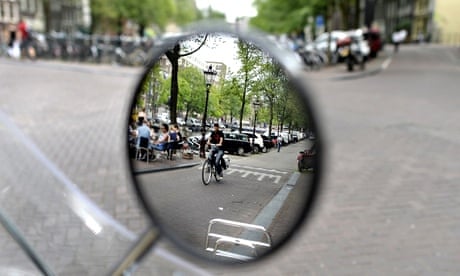In the autumn of 1803 John James Audubon tied a string around the leg of a migrating bird in order to test whether it would return the following spring.
That small, low-tech experiment gave birth to the practice of collecting animal movement and behaviour data. Today we are increasingly turning the practice back on to ourselves using far more sophisticated tools and techniques. The result is an unprecedented amount of personal data with significant implications both for how we understand ourselves and interact within society.
Once strictly the language of science, data is now also the language of our lives. Software and sensors worn or carried on the human body continuously chronicle and quantify data about our behaviour and daily existence. For many, quantifying ourselves has become part of an essential routine.
Each morning I engage in a list of data activities to start my day. I roll out of bed with my Fitbit in hand. As it uploads sleep data to my phone, I step onto a smart scale to capture my weight and simultaneously note in a separate app how refreshed I feel from my night's rest. I skim my stats over breakfast before embarking on my morning commute, which I also quantify using a cycling application.
While our data-driven abstractions are formatted for analysis, they need to be translated into stories that we can consume. Most of the insights are predictable, but some are surprising.
I've found that my sleep patterns were more adversely affected by a Breaking Bad marathon than by the birth of my second child. This type of data-enabled feedback loop can be like reading your diary and realising which bits and pieces of quotidian minutia are worth documenting, and which pieces are missing. Once understood, we can alter our approach and collect new streams of data that help us comprehend our lives better than the last.
A powerful social narrative
Scaling-up our new affection for data-inspired personal insight, we can begin to anticipate collective social applications, together with the associated social implications. When we aggregate the right data and tell our stories collectively, they become a powerful social narrative. Under the right scenarios, they can even act as an agent of change in the world.
In 2009, the city of New York weighed measures to re-zone one of the last enclaves of US manufacturing: the garment district in midtown Manhattan. Fearing the consequences to the fashion industry and the loss of thousands of jobs, fashion designers and manufacturers fought the re-zoning. However, interviews and empirical research were insufficient to curb the debate.
Two data researchers came up with a way to show the density and value of activity in that zone by leveraging real-time data collected by the smartphones of workers in the district. The story they told with data was powerful enough for the city to shelve the re-zoning plans.
Data as a global language
This pattern of leveraging data for bottom-up change is happening all over the world. Social and environmental challenges that were once unapproachable are being taken down with regularity, in part because we are all now fluent in the same global language: data. And the principle is hardly cold or remote.
City planners are applying my cycling data, together with the data from an army of fellow peddlers, to analyse and improve city infrastructure and urban design. Through my participation, I've become a contributor to the improvement of my community by agreeing to a data transaction that is practically frictionless.
A popular US retail chain provides me with reward points when I link my fitness data to the store's branded app. It effectively assigns a mutually agreed upon value to my personal data that I can utilise through a modern interpretation of the barter transaction. Soon insurance providers will begin to apply the same model and others will follow.
Personal data economy
This emergence of a personal data economy is likely to initially create discomfort and spark debate before ultimately settling into the eternally evolving first world understanding of the "new normal."
In the future, I won't have to step on the scale; my shoes will provide real-time weight information throughout the day. My cycling data will be recorded by simply buckling my helmet. Sensors embedded in my pyjamas will quantify my sleep. And groups like the workers in the garment district will be able to aggregate their data without assistance, and activate it collectively.
Data is already deeply personal. We are learning to decode consistently the stories within our data streams, and use them in unison with that of others. And still, we have only scratched the surface its power.
Eric Boam is senior interaction designer at Frog in Austin, Texas
The technology and innovation hub is funded by BT. All content is editorially independent except for pieces labelled advertisement feature. Find out more here.
Join the community of sustainability professionals and experts. Become a GSB member to get more stories like this direct to your inbox

Comments (…)
Sign in or create your Guardian account to join the discussion